
Since our founding more than 100 years ago, we have been transforming by-products from livestock and marine sources—such as bovine bones—into value-added products like gelatin and collagen peptides, which we deliver across a wide range of fields including food, health and beauty, and medical care.
In addition to pursuing this upcycling business model that creates new value from unused resources through proprietary manufacturing technologies and research and development, we have also focused on protecting the global environment by reducing CO₂ emissions, water usage, and energy consumption during the production of our products.
As a member of the local community, we have also actively engaged in initiatives aimed at coexisting harmoniously with the community,such as cleaning activities around our factories and welcoming elementary school students for factory tours.
In particular, with regard to environmental improvements, we established our Basic Policy on Greenhouse Gas Reduction in June 2022. Specifically, we are working to reduce CO₂ emissions by 46% from fiscal 2013 levels by fiscal 2030 on a non-consolidated basis, and to achieve carbon neutrality by fiscal 2050.
As climate change, including global warming, widening social disparities, and human rights issues continue to pose major challenges, companies are increasingly expected to achieve sustainable growth while addressing these concerns.
In light of our current operating environment, we have reviewed our Sustainability Policy and material issues to better integrate them with our overall management policy.
By further evolving our upcycling business model, we aim to contribute to society through the enrichment of people's lives.
Transforming Unused Resources into Valuable Products
—Manufacturing for a Sustainable Society
We utilize by-products generated in the livestock and fisheries industries and transform them into high value-added products such as gelatin and collagen peptides.
This approach helps make effective use of limited resources, while also contributing to society in a variety of areas—offering new food experiences, supporting longer healthy life expectancy, and advancing medical applications.
Through manufacturing that avoids waste and creates new value, we are working toward the realization of a sustainable society.
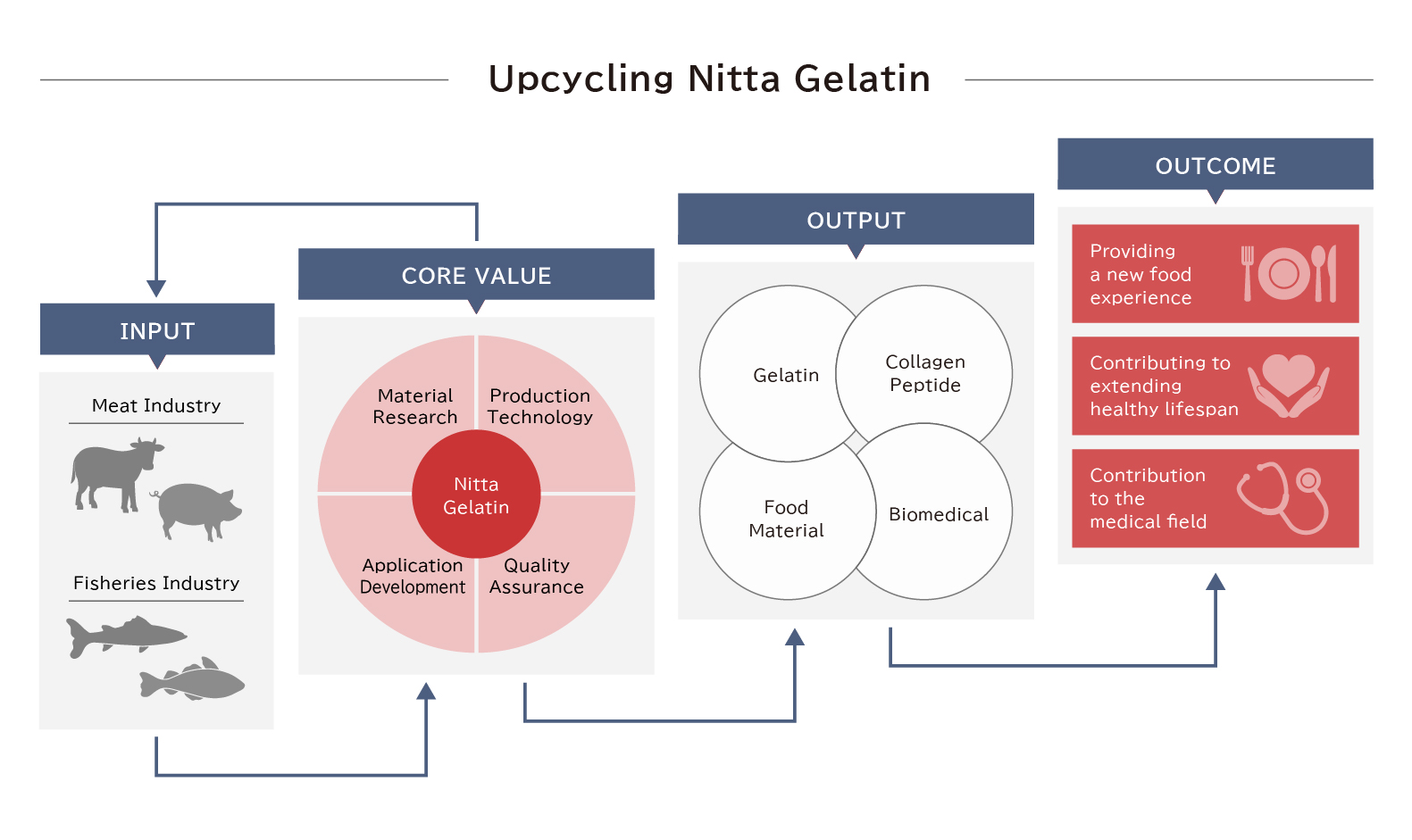
We have built an upcycling business model that transforms by-products from livestock and marine sources into valuable materials such as food, gelatin, and collagen, delivering them across diverse fields including food, health, and medical care.
By further expanding and advancing this model, we aim to enhance our sustainability and contribute to the realization of a sustainable society.
Environment
We promote resource and energy conservation while striving to reduce environmental impact. We also work to make effective use of waste generated during our production processes, contributing to the realization of a sustainable society.
Procurement
To fulfill our responsibility of delivering products to customers, we are committed to the sustainable and stable procurement of raw materials. We also strive to build trust with customers and society through the supply of safe products and transparent communication.
Diversity
We respect the diversity of our people and strive to create a workplace environment where each individual feels fulfilled and can fully demonstrate their abilities.
Community
We are dedicated to preserving a healthy living environment and contributing to the revitalization of local communities by living in harmony with them as an active member of society.
Human Rights
We are committed to preventing and eliminating human rights violations in our corporate activities, working toward a society where the dignity of all people is protected.
With reference to key environmental and social guidelines such as the Sustainable Development Goals (SDGs), Global Reporting Initiative (GRI) Standards, and ISO 26000, we identified material issues relevant to our business.
These issues were mapped based on two axes: the impact of our business on society and the impact of society on our business. This mapping served as the foundation for determining our priority areas.
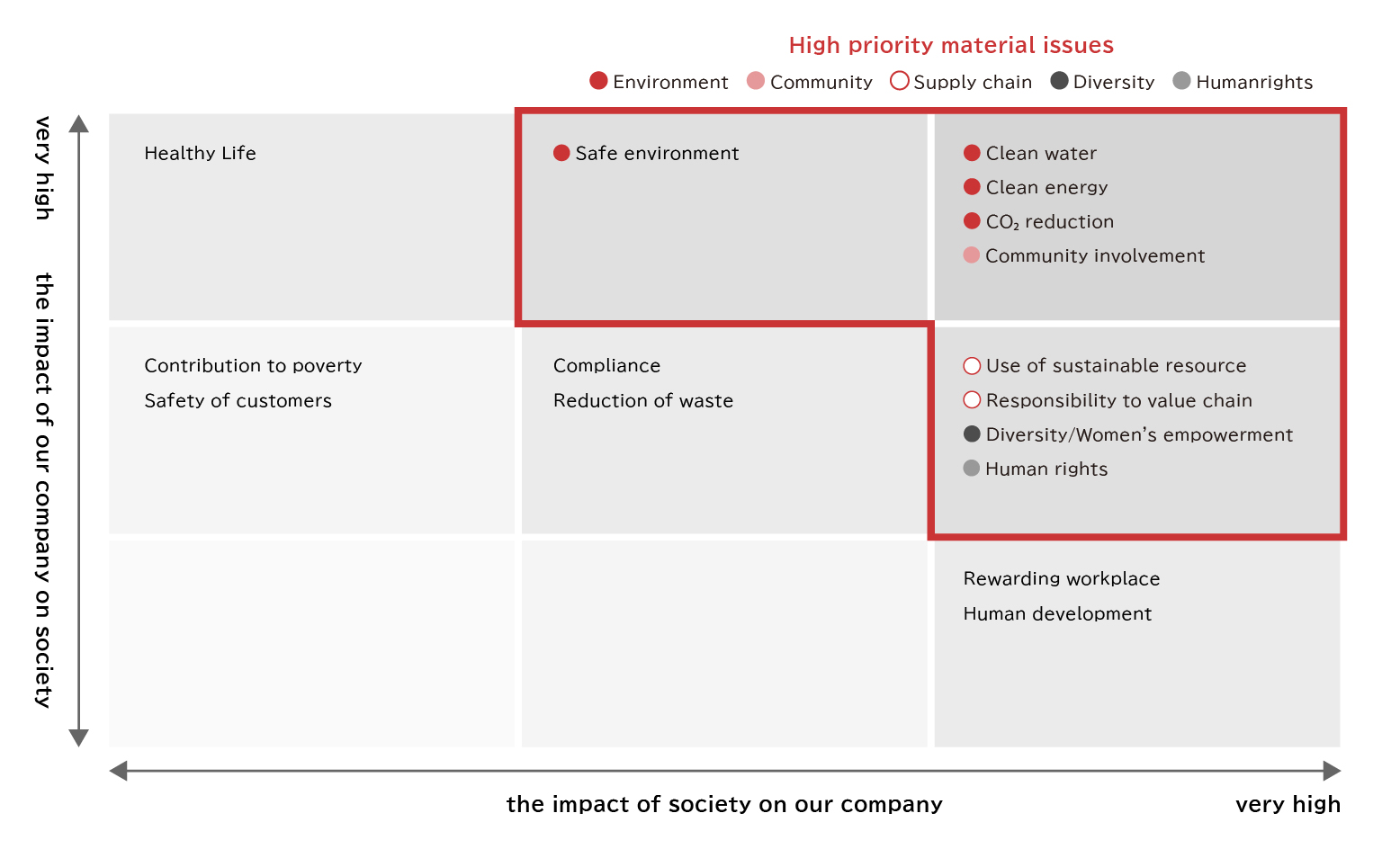
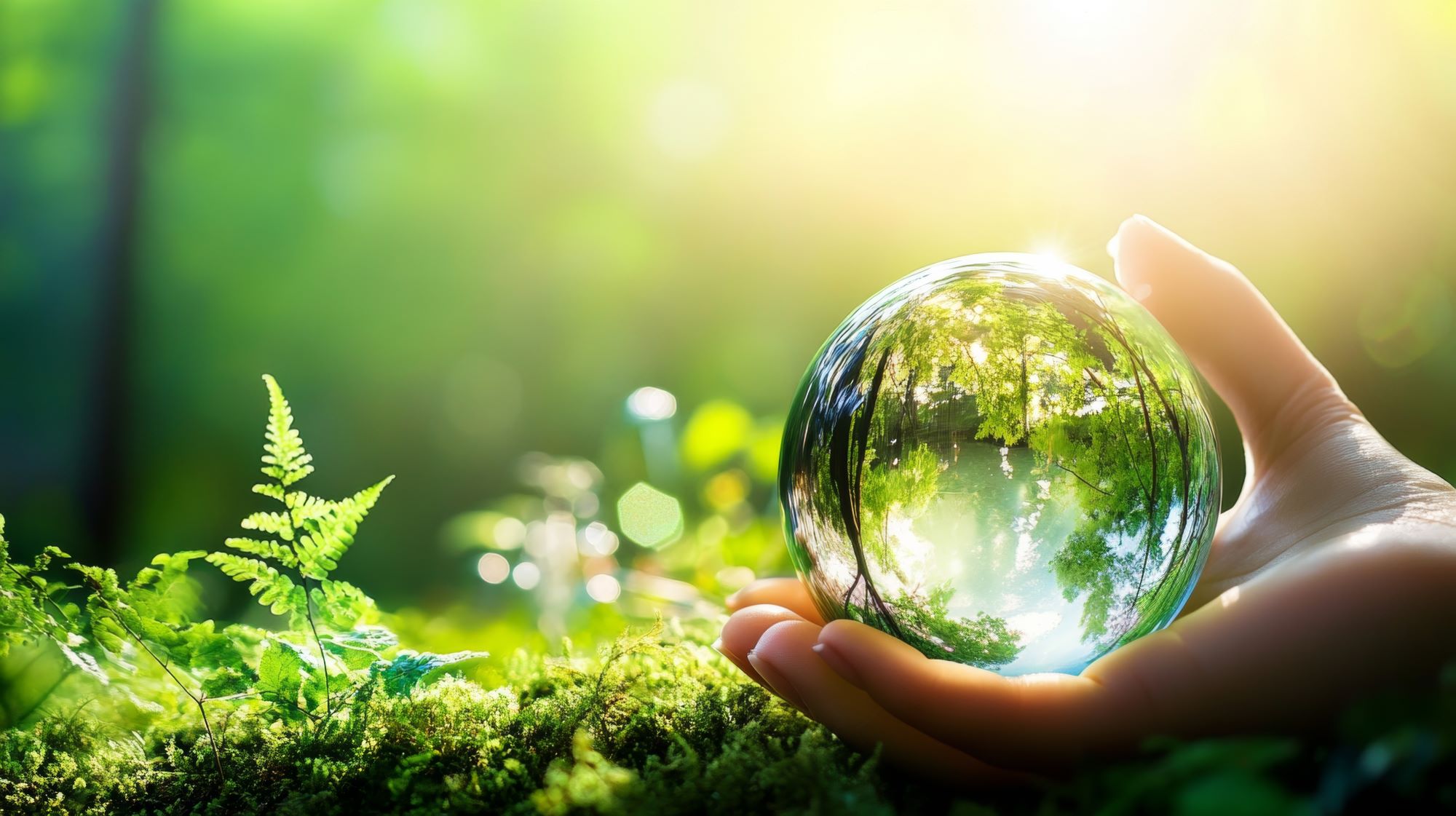
01. Environment (Water, Clean Energy, CO₂ Emissions Reduction)
This section outlines our environmental initiatives, including efforts to reduce CO₂ emissions through efficient energy use, conserve water resources, and improve environmental conditions by utilizing by-products generated during the manufacturing process.
02. Procurement
This section highlights our procurement initiatives, including efforts to build a stable supply chain to ensure continuous product delivery as well as the implementation of codes of conduct.


03. Diversity
This section describes our diversity initiatives aimed at creating a workplace where individuals from all backgrounds are respected and empowered to thrive.
04. Community
This section outlines our community initiatives, including participation in local cleanup activities and events, aimed at strengthening ties with local communities and achieving sustainable growth together.
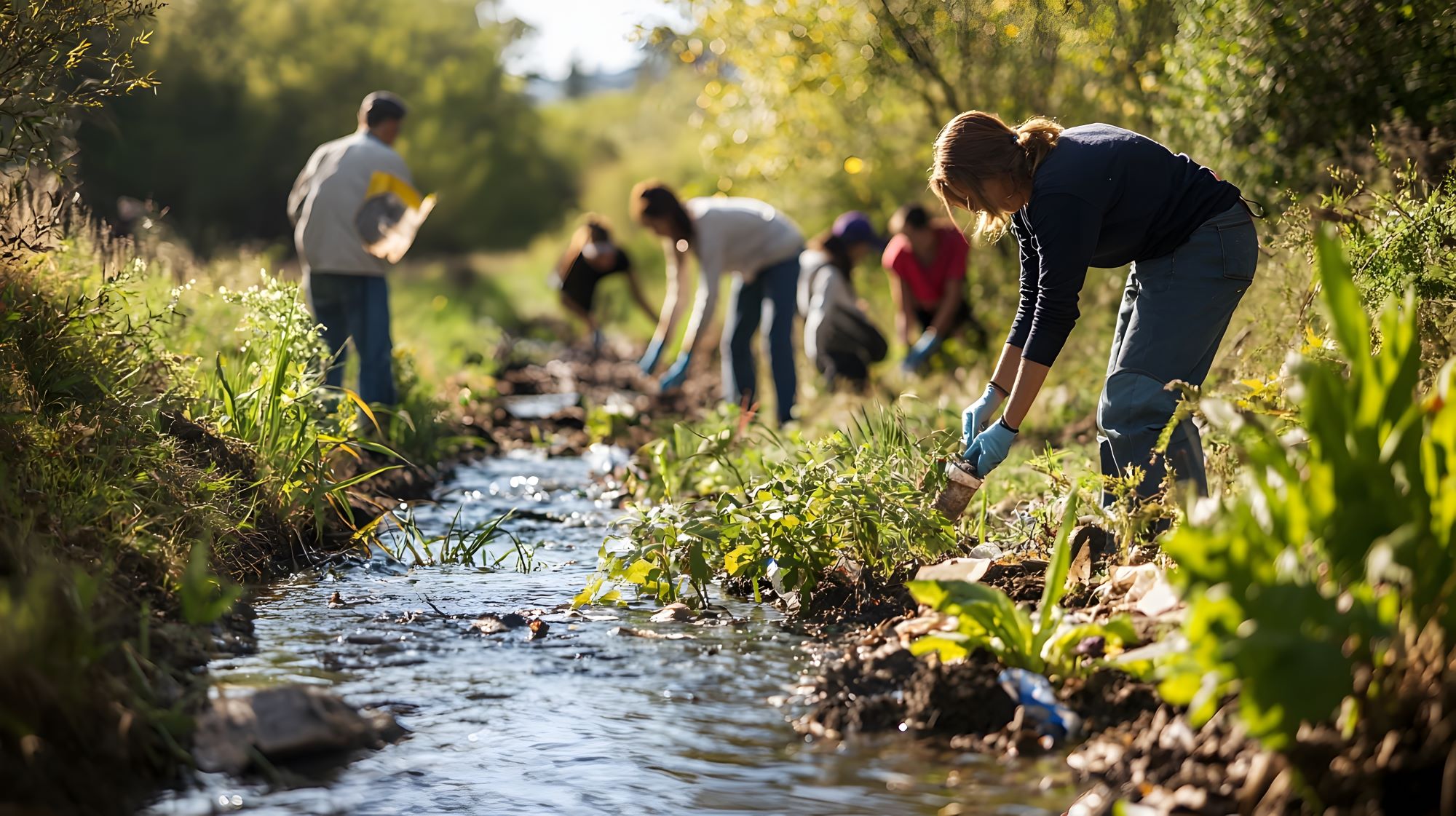
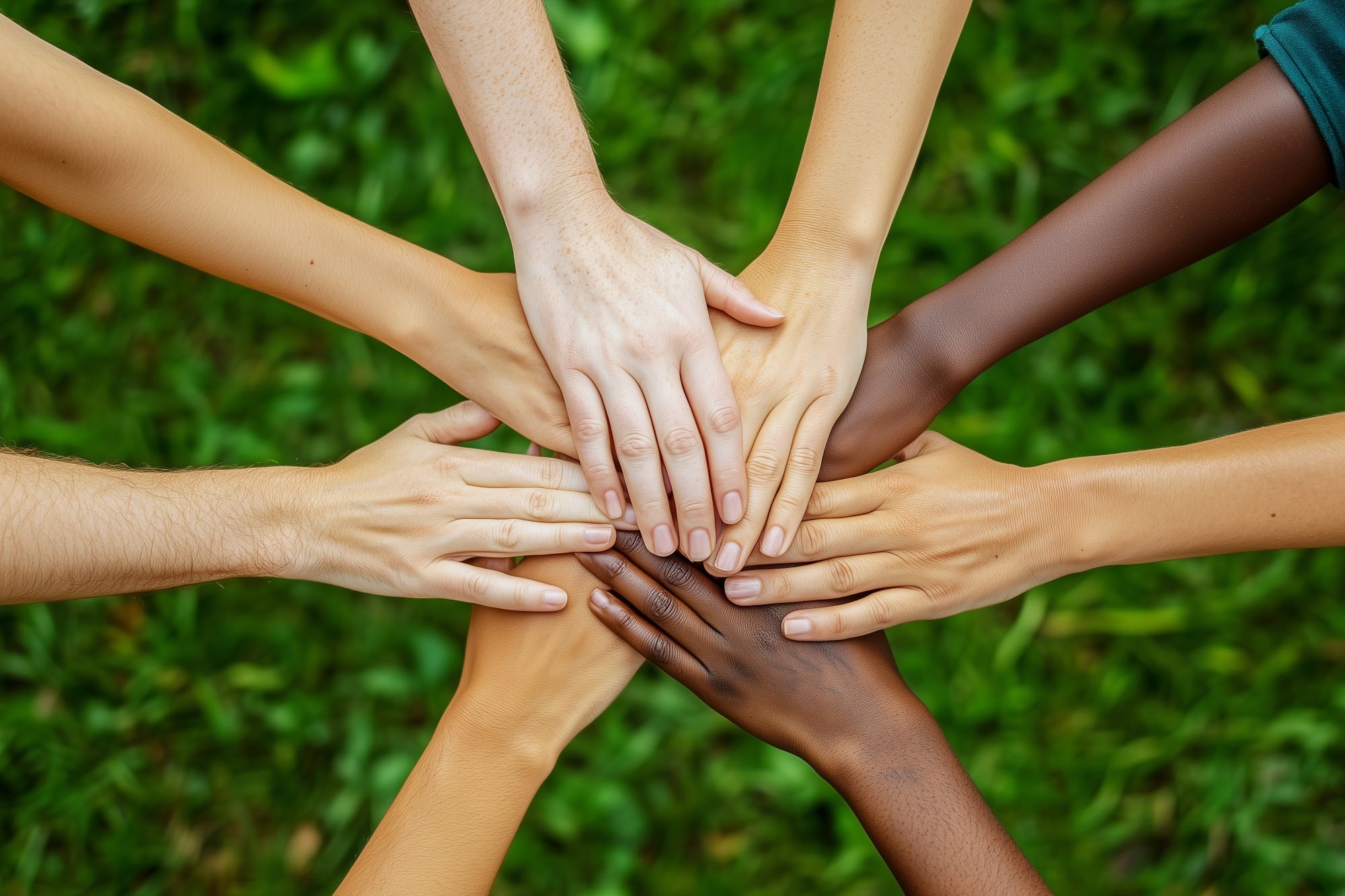
05. Human Rights
This section highlights our human rights initiatives, with a focus on preventing and eliminating human rights issues while promoting an environment where all stakeholders can live safely and equally.


